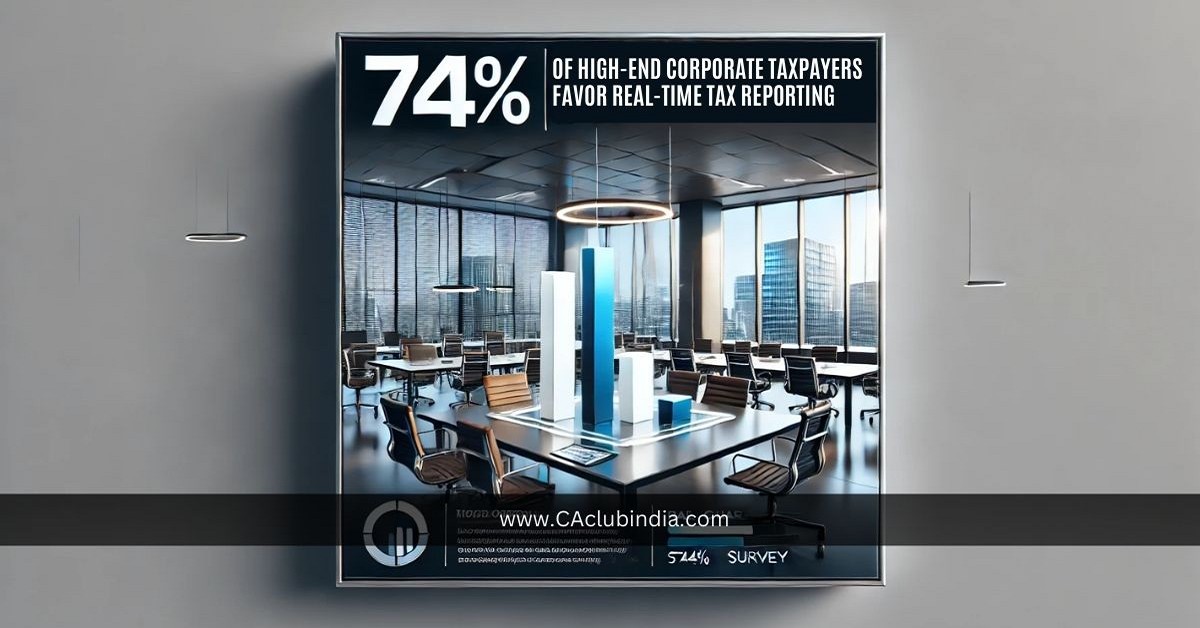A recent survey has revealed that 74% of India’s top corporate taxpayers are advocating for the Income Tax (I-T) department to enable near real-time reporting and compliance monitoring. The Income Tax Digitalisation in India Survey, conducted among 250 high-end corporate taxpayers, highlights a growing preference for technology-driven tax solutions in the evolving compliance landscape.
Key Insights from the Survey
1. Near Real-Time Reporting
A significant majority of respondents expressed the need for real-time updates on tax compliance. Such measures would allow businesses to promptly track their status and make necessary adjustments.

2. Tax E-Wallets for Refunds
Around 67% of businesses showed interest in e-wallets for faster tax refunds. These e-wallets could credit refunds instantly after order approvals, improving cash flow management by offsetting outstanding demands or future liabilities.
3. Standard Audit File for Tax (SAF-T)
Respondents emphasized adopting SAF-T, a digital reporting tool designed to streamline compliance and enhance efficiency through near real-time monitoring.
4. APIs for Seamless Connectivity
63% of businesses favored the implementation of Application Programming Interfaces (APIs) for seamless integration with tax portals. APIs would allow direct data exchange, making compliance processes more efficient.
5. Emerging Technologies in Tax Functions
Over 57% of respondents suggested leveraging technologies like blockchain and artificial intelligence (AI) to modernize tax administration and boost compliance.
Growing Investments in Tax Digitalisation
The survey also noted an upward trend in tax transformation budgets, with 77% of companies increasing investments in FY24 compared to 67% the previous year. Businesses are adopting cutting-edge technologies like:
- Robotic Process Automation (RPA)
- Generative AI (GenAI)
- Machine Learning (ML)
- Cloud-based tax solutions
Currently, 69% of companies use third-party tax software, marking a rise from 57% in 2023.
Challenges in Transitioning to Digital Tax Systems
Despite the advancements, businesses face notable challenges in tax digitalisation:
- Lack of Skilled Professionals: Shortage of tax technology experts slows adoption.
- Resistance to New Technology: Concerns over complexity and potential disruptions persist.
- Integration Issues: Compatibility problems between existing systems and new solutions hinder progress.
The Road Ahead
As India’s tax ecosystem continues to modernize, the survey underscores the need for government collaboration with businesses to address challenges and enable a smoother transition to a digital tax environment. Tax experts believe that implementing these measures will enhance efficiency, transparency, and compliance in the long term.





 CAclubindia
CAclubindia


